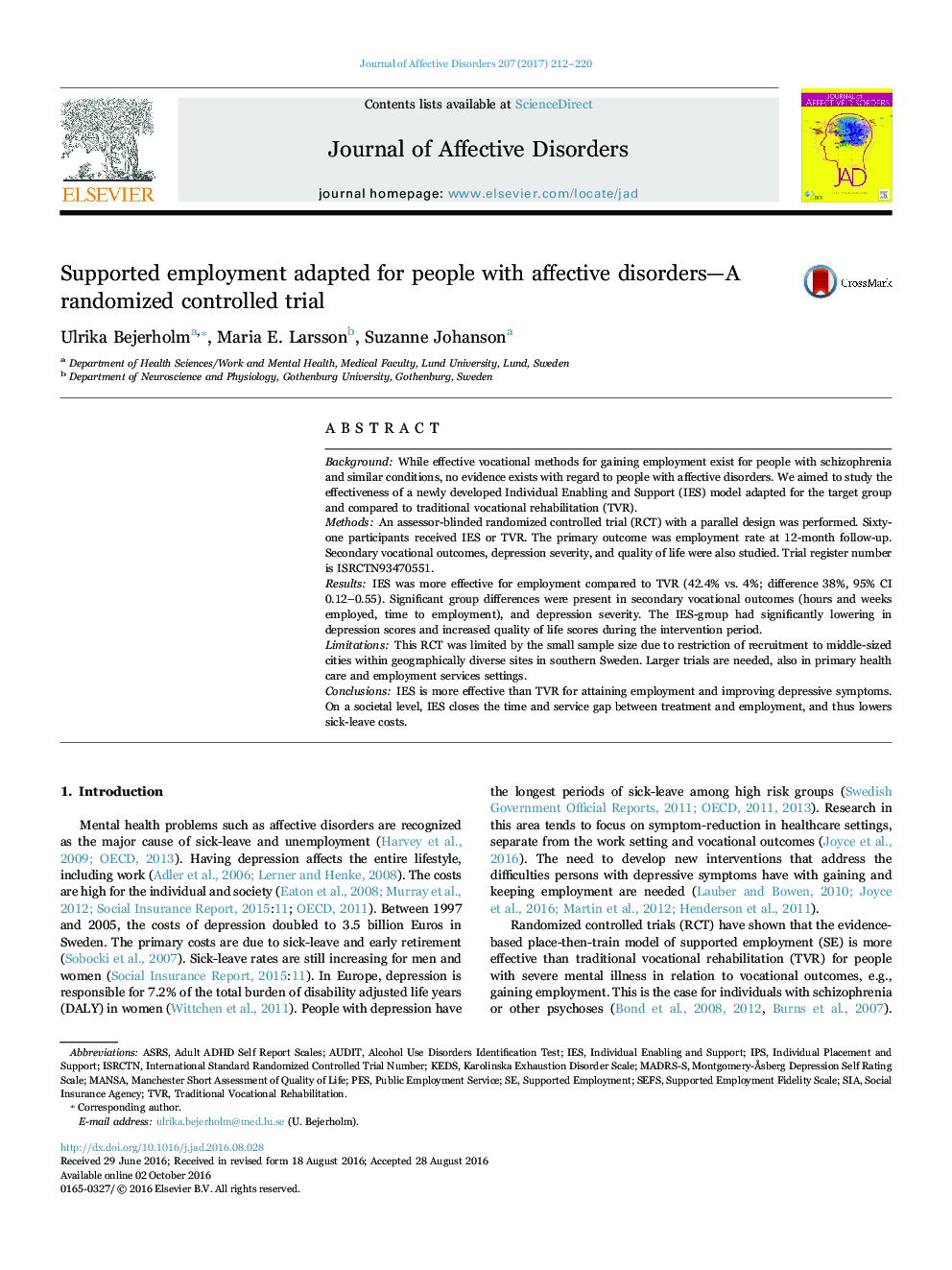| Article ID | Journal | Published Year | Pages | File Type |
|---|---|---|---|---|
| 6229510 | Journal of Affective Disorders | 2017 | 9 Pages |
â¢The IES model is effective for employment and depression in outpatients with affective disorder.â¢Participating in IES improves depressive symptoms and quality of life.â¢Traditional services foster a service gap between treatment and employment.â¢Further trials on IES effectiveness in primary health care settings are needed.
BackgroundWhile effective vocational methods for gaining employment exist for people with schizophrenia and similar conditions, no evidence exists with regard to people with affective disorders. We aimed to study the effectiveness of a newly developed Individual Enabling and Support (IES) model adapted for the target group and compared to traditional vocational rehabilitation (TVR).MethodsAn assessor-blinded randomized controlled trial (RCT) with a parallel design was performed. Sixty-one participants received IES or TVR. The primary outcome was employment rate at 12-month follow-up. Secondary vocational outcomes, depression severity, and quality of life were also studied. Trial register number is ISRCTN93470551.ResultsIES was more effective for employment compared to TVR (42.4% vs. 4%; difference 38%, 95% CI 0.12-0.55). Significant group differences were present in secondary vocational outcomes (hours and weeks employed, time to employment), and depression severity. The IES-group had significantly lowering in depression scores and increased quality of life scores during the intervention period.LimitationsThis RCT was limited by the small sample size due to restriction of recruitment to middle-sized cities within geographically diverse sites in southern Sweden. Larger trials are needed, also in primary health care and employment services settings.ConclusionsIES is more effective than TVR for attaining employment and improving depressive symptoms. On a societal level, IES closes the time and service gap between treatment and employment, and thus lowers sick-leave costs.
